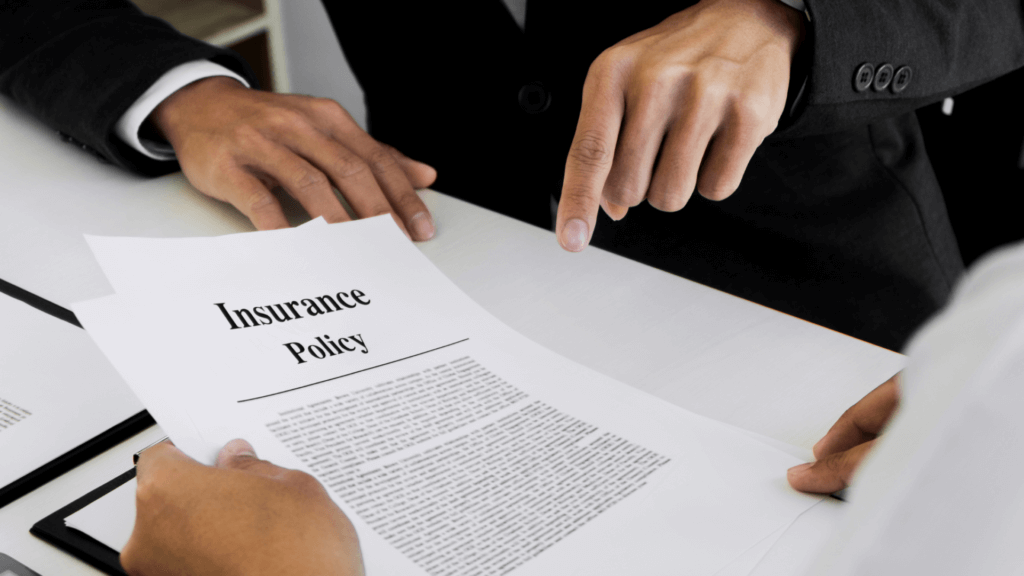
There are multiple steps required to file a commercial property damage claim, and the process may be complex in order to have the claim handled properly. With so many requirements, it can be easy for certain items to fall through the cracks. Ensuring a business owner understands how to navigate the claims process to fully recover what they are owed under their insurance policy can help them reopen their doors to clients and customers efficiently.
Commercial Insurance Claim Recovery
Commercial property damage is a reality countless business owners deal with year after year. Whether a fire broke out resulting in interior smoke damage to a property, or a hailstorm caused damage to the roof of a property, events like these can be incredibly devastating to the livelihoods of business owners. Because of the huge impact these and other covered events can have, it’s pertinent that commercial property owners know how to navigate the claims process so they can successfully fully recover what they’re owed under their policy. Unfortunately, because of the nuanced language in most insurance policies and the complexities involved in the insurance claims process, it can be easy to fall victim to a variety of pitfalls that can delay a full claim recovery.
Some of the most common pitfalls commercial property owners may encounter that must be avoided to help ensure a smoother path to full claim resolution includes:
Delaying the submission of a claim
After a commercial property sustains damage from a covered event, it is essential the policyholder begin to communicate with their insurer as soon as possible. Commercial policyholders should submit a claim for the damage after ensuring they have all the information needed to prove up the cause of damage. But, despite having many similarities, each insurance policy is ultimately unique to the needs of the policyholder and the language of the carrier used in drafting. This makes it imperative for the insured to review the policy language in order to understand what is and isn’t covered.
Although policyholders can wait up to two years in some cases to get in contact with their insurer after property damage has occurred, they have a much greater chance of avoiding a claim underpayment or denial if they file in a timelier manner. And, both state law and the terms of various insurance policies may require it.
Not preserving evidence of damage or important documents
When damage to a commercial property occurs, policyholders must begin to document all areas of the property that have been damaged. Photos and videos of the damage, any receipts for purchased items that have been damaged, and any other relevant documents are all imperative to have on hand to avoid any issues with the claim investigation. Putting the information together in a way that is easy for the insurer and its advisors to understand and being prepared to address grey areas, inconsistencies, and possible questions can help the investigation progress more smoothly and efficiently.
Policyholders should also be proactive in mitigating any further damage to the property, and many policies require it. This does not include making any substantial repairs to the property, however. Rather, making temporary repairs, such as setting up tarps and/or blocking off any areas of the property that could be exposed to further damage, can help to contain the damage to the areas being investigated in the claims process.
Not fully understanding the rights of the insurance company
Many commercial property insurance policies contain information about the rights the carrier has during the claims recovery process, including a subrogation clause. A subrogation clause applies to commercial property damage or business interruption claims where the insurer pays for damages that may have been caused by a third party. The clause states that if a policyholder has a right to recover certain damages from someone else, those rights can be transferred to the insurer.
For instance, if a fire breaks out at a restaurant and spreads to a retailer located next door, the event will ultimately be investigated by a Fire Marshall to determine the cause of damage. Once the Fire Marshall investigates the fire, if the cause of the damage is the negligence of the restaurant owner, the retailer’s commercial property insurer can attempt to recover the amount claimed by taking legal action against the restaurant for causing the property damage to the retailer. However, it’s important to note that subrogation can only occur if the insurer has already compensated the insured for the loss. The insurer ultimately pursues subrogation as a means to recover the funds they lost by paying the claim.
Regardless, standard subrogation clauses in commercial property policies allow the policyholder to waive their rights of subrogation well before a loss occurs. Thus, the policyholder may sign a contract to agree to waive their right to sue another party for losses that may occur in the future. This is particularly notable for commercial properties owned by landlords, as a subrogation clause also allows policyholders to waive their right to sue another party after a loss if the responsible party is:
- Insured under the same policy;
- A company the policyholder has control over; or
- A tenant.
Insurance Coverage Attorneys
Despite the many ways a commercial property owner can attempt to obtain a full recovery of their damage claim, their insurance company may have other ideas. Even if a valid property damage claim has been filed, the insurer has been properly notified, and the parameters of the policy are well understood, the insurer can still choose to undermine the claims process for its benefit.
At Raizner Slania, our insurance coverage attorneys are well versed in the multitude of ways insurers attempt to devalue, delay, and deny the valid claims of commercial policyholders. If you are a business owner and you believe your valid commercial property damage claim has been underpaid, delayed, or wrongly denied, we can help. Contact our office today for more information.


